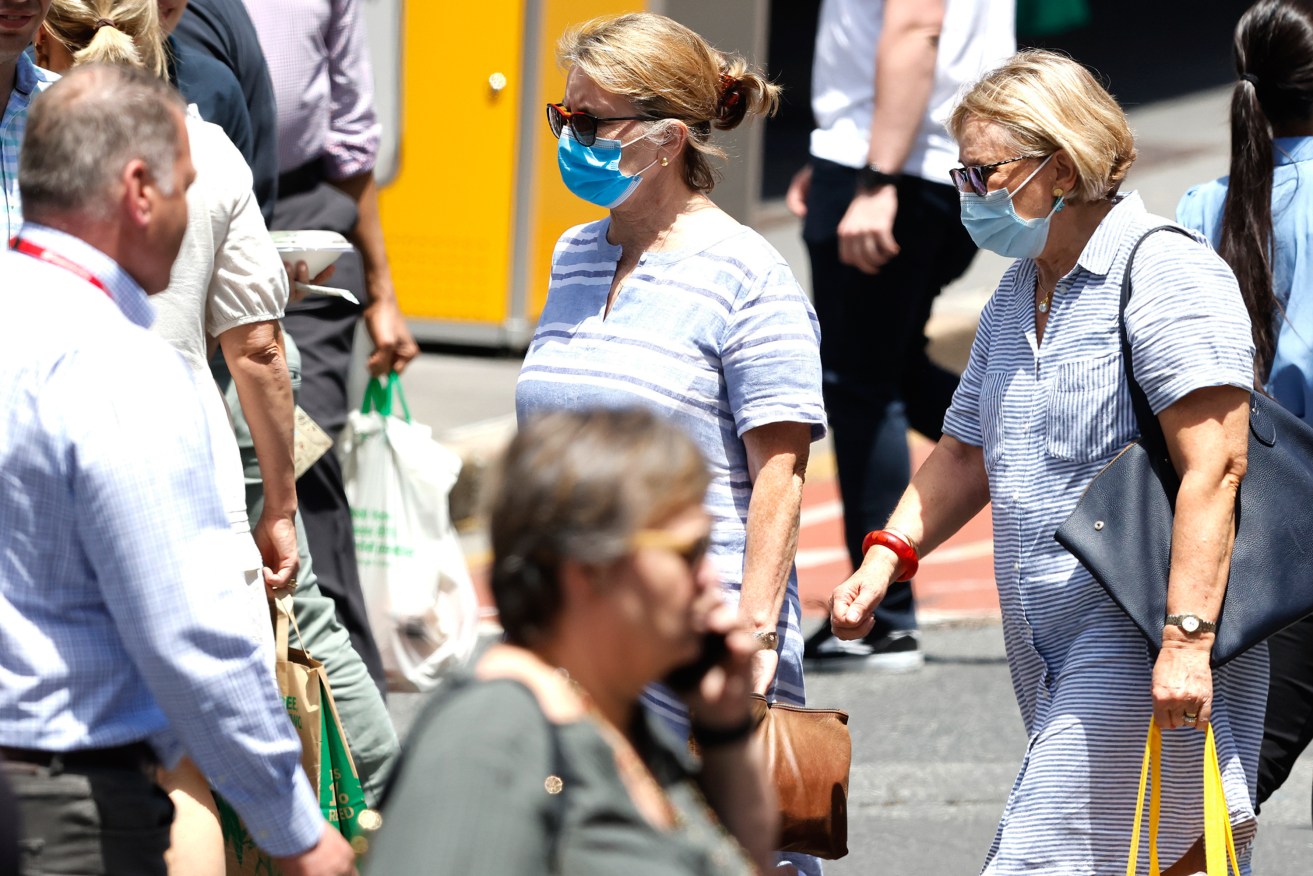‘Days of mask mandates are numbered’: Malinauskas
Premier Peter Malinauskas has flagged his intention to consider ending mask mandates on public transport after national cabinet yesterday agreed to remove mask requirements for domestic flights.

Photo: AAP/Jono Searle
National cabinet agreed yesterday to axe mandatory mask wearing aboard domestic flights and cut the isolation period from seven days to five for asymptomatic cases.
The changes will come into effect from September 9.
Malinauskas said this morning that national cabinet’s decision “now gives us a chance to consider our options in respect to public transport”.
“This is a decision that rests with the states, and it’ll be open to different states to do different things in this regard,” he told ABC Radio Adelaide.
“I get the impression that there will be some jurisdictions that will retain mask use on public transport for a little longer.
“In South Australia, we’ll certainly be assessing it over coming days ahead and certainly be keen to get health advice regarding this.
“But the days of mask mandates are numbered.
“I don’t think mass mandates operating in perpetuity is a sustainable long-term approach.”
Besides on public transport, masks are still mandatory in South Australia’s high-risk settings, such as hospitals and other health care services, pharmacies, disability and aged care services.
Malinauskas said the removal of masks in aged and disability care was a “completely different circumstance”.
“Where we can have a discrete approach for a certain community that is more vulnerable than another, then of course, we should adopt that,” he said.
“Throughout the pandemic without nuanced responses for different situations and that has served as well.
“That certainly should be maintained in respect to aged care in particular, but not just aged care, there are hospitals, disability sector and the like.”
Meantime, a leading epidemiologist says the reduction of the COVID-19 isolation period from seven to five days is unlikely to increase overall cases.
The new rule applies only to people who no longer have symptoms, but remains at seven days for workers in high-risk settings.
Professor Catherine Bennett says it’s unlikely there would be more infectious people in the community, given about one in three people know they have an infection and are isolating.
“We’re talking about the minority and we are taking a couple of days of isolation off the end where they’re least infectious and where the majority of people will have cleared their infection,” she said.
New data revealed 75 per cent of people had cleared the virus by seven days, Prof Bennett added.
The Australian Chamber of Commerce and Industry welcomed the changes, saying they would ease crippling workforce shortages by releasing people from isolation.
“With businesses recording worsening staff absences, this change will enable more employees to return to work earlier, ensuring businesses can keep their doors open and keep the economy moving,” chief executive Andrew McKellar said.
The changes will come into effect on September 9, alongside the move to make face masks on domestic flights voluntary.
Prime Minister Anthony Albanese said it was an appropriate time to reduce the requirements.
“This is a proportionate response at this point in the pandemic,” Albanese said.
The pandemic leave disaster payment will also move to cover the same isolation period from September 9.
Leaders will meet in a fortnight to discuss the future of paid pandemic leave, which is due to wrap up at the end of this month.
It comes as Australia recorded 69 COVID-19 deaths on Wednesday amid more than 13,000 cases.
And the World Health Organisation says the number of new coronavirus cases and deaths reported globally continues to fall nearly everywhere, describing it as a “welcome decline”.
The United Nations health agency said there were 4.5 million new COVID-19 cases reported last week, a 16 per cent drop from the previous week.
Deaths were also down by 13 per cent, with about 13,500 fatalities.
The WHO said COVID-19 infections dropped around the globe while deaths decreased everywhere except for Southeast Asia, where they climbed by 15 per cent and in the western Pacific, where they rose by 3 per cent.
– with AAP




